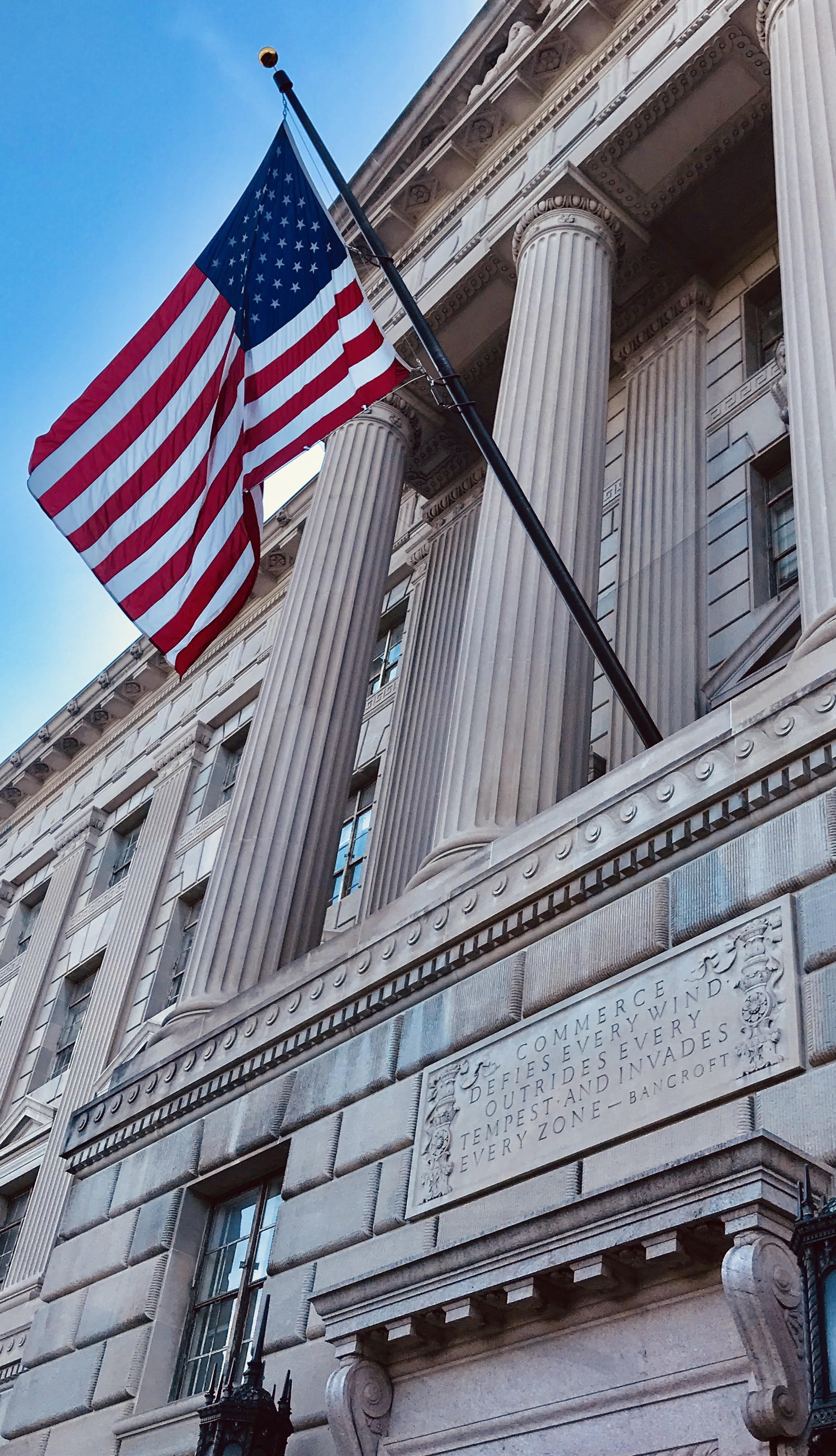
I have always found inscriptions on buildings fascinating. Most were given great thought and, at least in the minds of those involved, have a timeless quality. I imagine it is similar in weight to selecting a tattoo. The inscription above the entrance to the United States Department of Commerce Building in Washington, D.C. reads, ”Commerce defies every wind, outrides every tempest and invades every zone.”
It is a quote from the statesman and historian, George Bancroft (1800–1891). Although Bancroft is most noted for his contributions to secondary education — he established the US Naval Academy in 1845 — he also held the post of Secretary of the Navy as well as Minister to Germany and the United Kingdom.
As I read this inscription I couldn’t help but think about an academic essay written by Francis Fukuyama in 1989 entitled The End of History. The basic premise of the paper is that history is a series of big ideas and these big ideas are manifest in a particular society or culture that for a time dominates the world. That dominance continues until that particular big idea runs its course and is replaced by a better idea — embodied in a different society. In his paper he speculated that we had reached the end of history because there was no credible challenge to liberal democratic capitalism embodied by the United States. As you can imagine his paper instigated a vigorous discussion.
One response to this essay was rather disquieting. The question was asked: If the United States were indeed the embodiment of the last great idea, what does it do better than any other countries and cultures on the planet?
Is it the best-educated country? No. Is it the healthiest country? No. Is it the happiest country? No. Is it the most moral county? No. The conclusion was that the US consumes more stuff than any other civilization in the history of the world, and every year we consume this stuff in greater and greater quantities.
With less than 5% of the world population the United States consumes more than 25% of the world’s oil and more than 23% of the earth’s coal. There are more shopping malls in the United States than high schools. The average person living in the US consumes 2.5 times more than a person in Japan, 35 times more than a person in India and a staggering 53 times more than a person in China. The United States produces over half the globe’s waste. Each of us consumes an average of 159 gallons of water a day while over half the earth’s population uses less than 25 gallons per day. It is estimated that the average child born in the United States will create 13 times more ecological damage than a child born in Brazil.
I think even Bancroft would be startled at the breadth and depth of US commercial endeavors. Consumer activity or commerce appears to be our nation’s super power, and it has certainly invaded every zone.
